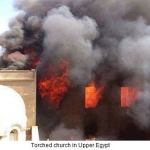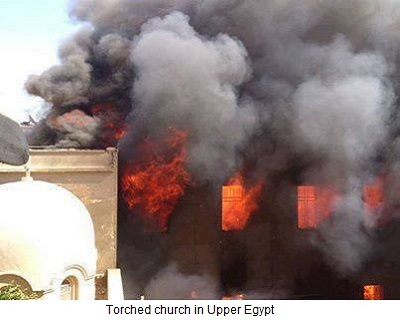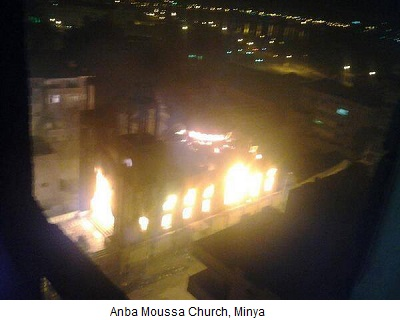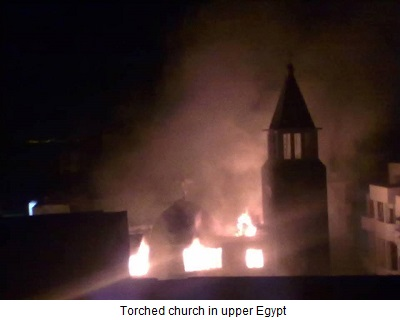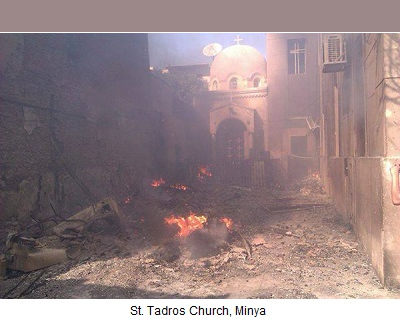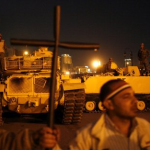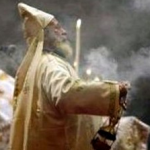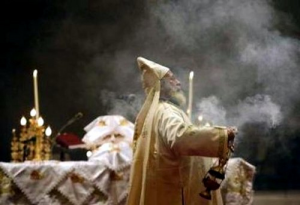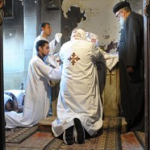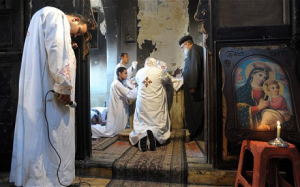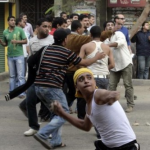Deprecated: trim(): Passing null to parameter #1 ($string) of type string is deprecated in
/home/aoiusa/public_html/wp-content/plugins/sexybookmarks/public.php on line
388
Deprecated: trim(): Passing null to parameter #1 ($string) of type string is deprecated in
/home/aoiusa/public_html/wp-content/plugins/sexybookmarks/public.php on line
394
Deprecated: trim(): Passing null to parameter #1 ($string) of type string is deprecated in
/home/aoiusa/public_html/wp-content/plugins/sexybookmarks/public.php on line
400

It’s Jimmy Carter all over again.
Source: Chronicles of Culture | Srdja Tifkovic
The image of the “democratic revolution” in Egypt, as constructed by the mainstream media in North America and Europe over the past two weeks, evokes the collapse of communism in Eastern Europe in 1989. The BBC World Service, NPR and other Western media outlets bring us young, articulate, lightly-accented demonstrators who talk of democracy, freedom, human rights and the rule of law. Hosni Mubarak is presented as a latter-day Erich Honecker, heading a corrupt and sclerotic regime on the wrong side of history.
The image is attractive but inaccurate. The unrest may be brought under control by Mubarak’s loyalists working in tandem with the military, or it may lead to one free election resulting in the establishment of an Islamic republic, but it will not produce a Western-style democracy. Political Islam, embodied in the Muslim Brotherhood, is the only well organized force capable of supplanting the regime and the only group with deep popular roots. The Brotherhood has let the secular reformists take the lead in the streets, confident that it will reap the benefits.
President Obama begs to differ. “The Egyptian people want freedom, they want free and fair elections, they want a representative government,” he told Bill O’Reilly in an interview just ahead of the Super Bowl. Downplaying concerns that the Brotherhood could take power and install a government hostile to U.S. interests, Obama described it as “one faction in Egypt” devoid of majority support:
[T]here are a whole bunch of secular folks in Egypt, there are a whole bunch of educators and civil society in Egypt that wants to come to the fore as well. And it’s important for us not the say that our only two options are either the Muslim Brotherhood or a suppressed Egyptian people… What I want a representative government in Egypt. And I have confidence that if Egypt moves in an orderly transition process, that we will have a government in Egypt that we can work with together as a partner.
This statement practically guarantees that the U.S. Administration will continue to mismanage the crisis. Obama’s wishful thinking suits the current strategy of the Brotherhood, which is based on a well established precedent: in 1979 Khomeini’s followers forged a tactical alliance with the reformist opponents of the Shah, only to eliminate them once the job was done. The process was completed in 1981 when Khomeini’s former ally, Iran’s first president Abolhassan Bani Sadr, was impeached and had to flee the country.
The oft-repeated media claim that the Muslim Brotherhood is “moderate,” or likely to become so when burdened with the responsibility of power, is absurd. It is a hard-line group based on a simple credo: Allah is our objective. The Prophet is our leader. Qur’an is our law. Jihad is our way. Dying in the way of Allah is our highest hope. It was founded in 1928 by Hasan al-Banna, an Egyptian school teacher nurtured on Wahhabism, as a revivalist movement explicitly opposed to the ascendancy of secular reformism. It started performing terrorist acts in Egypt, which led to a ban on its activities. An Ikhwani tried to assassinate Egyptian President Nasser in 1954 and four others succeeded in killing his successor Anwar al-Sadat in September 1981. Today the Brotherhood has branches in every traditionally Muslim country and all over the world, including the United States. Some minor regional differences notwithstanding, they all share the same long-term goal: the establishment of a world-wide Islamic state. Its strength was manifested when its candidates were allowed to field candidates as individuals in the 2005 legislative elections. They were able to compete for one-fifth of the seats, and won all of them.
Obama’s implicit treatment of Egypt’s current government as a spent force is short-sighted and detrimental to a stable solution. The regime of Hosni Mubarak has been very good to America. For almost three decades it has honored the peace treaty with Israel signed in 1979 by Mubarak’s slain predecessor Anwar al Sadat. On many occasions, and notably during the Second Intifada, it ignored the pressure of “the Street” and rejected the lure of pan-Arabism. The U.S. Navy has enjoyed privileged access to the Suez Canal—a key consideration in Washington’s overall Middle Eastern strategy—and the Pentagon was free to stage elaborate war games in Egypt’s deserts. Egypt was an active participant in the first Iraqi war in 1991 and a silent American partner in its 2003 sequel. It has provided non-lethal support to the “Allied” effort in Afghanistan. It has shared anti-terrorist intelligence with U.S. agencies at all levels of classification. Unlike Saudi Arabia it was a true “American ally,” one of the few in the Arab world and the most important one of them all.
Mubarak’s Egypt was comparable to Turkey during the Cold War. The regime believed in a firmly guided democracy, mistrustful of “the people’s” ability to decide what was good for them. It was nevertheless eminently liberal in comparison to Saudi Arabia or Libya, as a visitor to Tripoli or Riyadh could attest while recovering from the ordeal at Cairo’s Mena House poolside. It was corrupt—all Arab governments are—but not more so than most. Providing the longest period of relative stability in Egypt’s post-medieval history, the Mubarak regime was unloved but respected at home, and regarded abroad as a key factor of regional stability.
Mubarak faced a formidable challenge of demographics: one-half of Egypt’s 85 million people are under 25, and one-half of young adults are unemployed. Yet steady liberalization of the economic system over the past decade has created millions of real, non-state jobs. Further up the social scale it has produced an entrepreneurial class that now offers more attractive career paths to middle-class youths than the traditional venues of the Army or the civil service. As he turned 80 two years ago, Mubarak thought he could look forward to another term in office after which he’d pass the torch to his son Gamal (47), declare that all’s well, and leave for his favorite foreign country, Germany, for another protracted medical cure.
It was not to be. In January 2009 Barack Obama was inaugurated. One of his major early foreign policy initiatives was to come to Cairo, in June 2009, to deliver a major “speech to the Muslim world.” The Egyptian government was presented with a destabilizing fait accompli. Obama’s address was a strange performance, full of misrepresentations and liberal platitudes on the nature of Islam, on America’s relationship with the Muslim world, and on Islam’s alleged compatibility with Western-style democracy. More significantly for Egypt’s domestic political scene, a dozen members of the Muslim Brotherhood were invited to attend the speech. This happened at the insistence of the U.S. State Department, on the President’s explicit orders, and in spite of the host government’s misgivings. The remarkable spectacle was taken by the Western media as “a clear sign that the Obama administration is willing to publicly challenge Egypt’s commitment to parliamentary democracy.” Mubarak was horrified.
Reminiscent of Jimmy Carter’s public challenge of the Shah 30 years earlier, Obama’s gesture produced similar results. The Brotherhood took it as a signal that Washington was ready to ditch its old ally. As I wrote at the time, Barack Obama, like George W. Bush before him, wanted a democratic transformation of the Middle East regardless of the consequences for the American interest: “the end result would be detrimental to U.S. security: in Egypt and everywhere else in the region. [Mubarak] would be swept from power and the Muslim Brotherhood would turn Egypt into an Islamic Republic, without ever thanking Obama for the favor.”
The unrest in Egypt has already given heart to the upholders of Islamic radicalism all over the region. The decision makers in Teheran and Ankara are pleased, albeit for somewhat different reasons. Iran has long regarded Mubarak’s Egypt as a major obstacle to the establishment of its hegemony in the region, and welcomes its debilitating internal crisis regardless of outcome. Turkey’s ruling Islamists rightly see Mubarak’s regime as a local equivalent of the Kemalist old guard that they have successfully neutralized over the past nine years. Last but not least, Hamas—a Brotherhood branch long hostile to Mubarak—now looks forward to the lifting of the blockade on Gaza’s western border. If this happens Israel will retrench ever more deeply behind its fortified boundaries. “The peace process,” always elusive and currently non-existent, will become impossible.
For the greater part of the 20th century Cairo had led the way in the intellectual quest for an authentically Arab response to the challenge of modernity. Vice President Omar Suleiman should be given a chance to continue that quest by incremental reforms within the framework of a firmly guided democracy. If he fails the Brotherhood will win, and duly condemn as rebellion against Allah’s supremacy the submission to any form of law other than the Shari’a. It is to be hoped that Egypt’s political class and military officers will prevent that outcome regardless of Obama’s expectations and advice.
